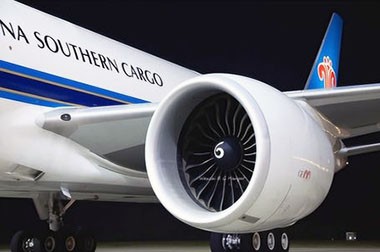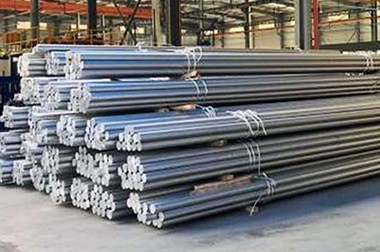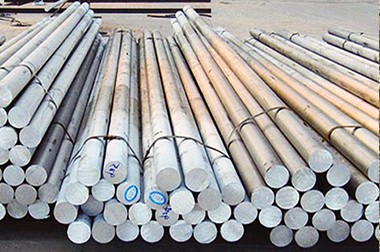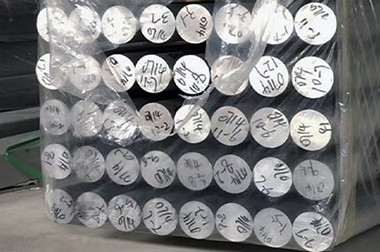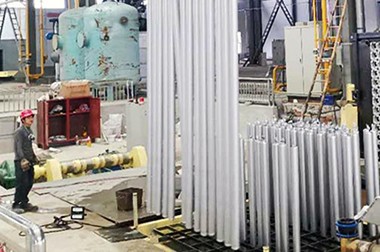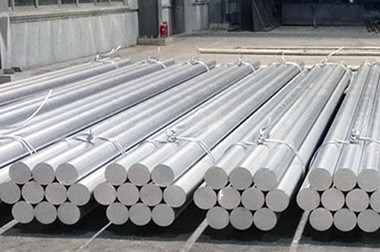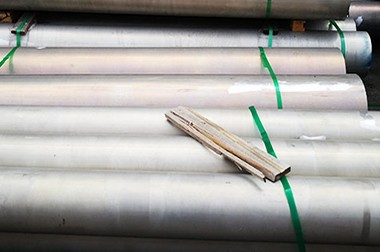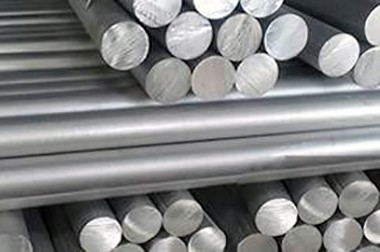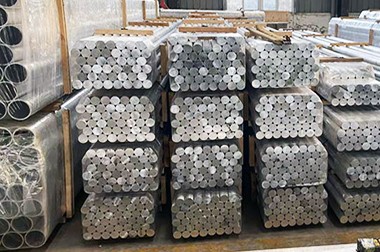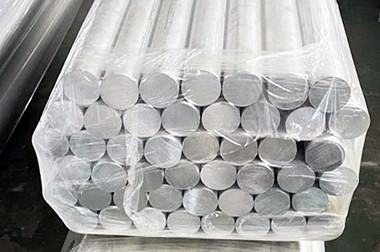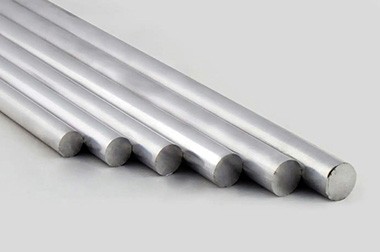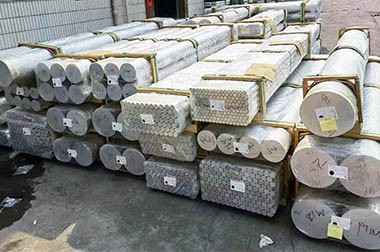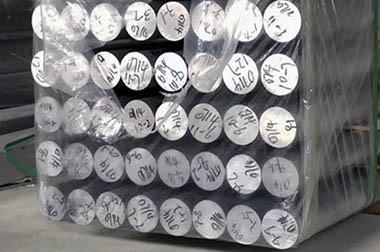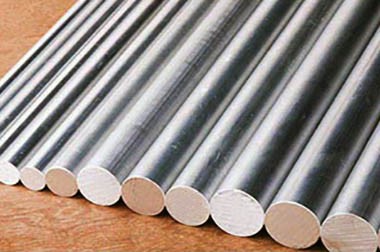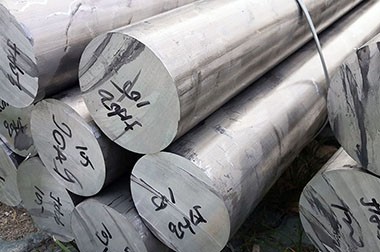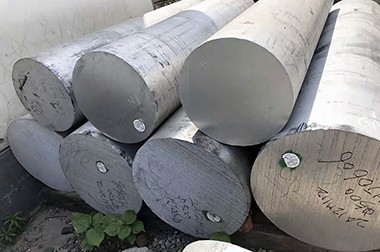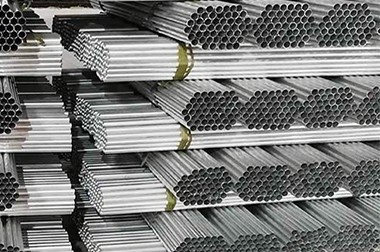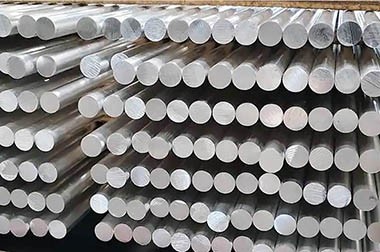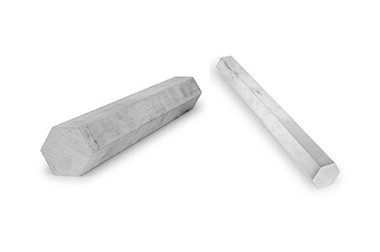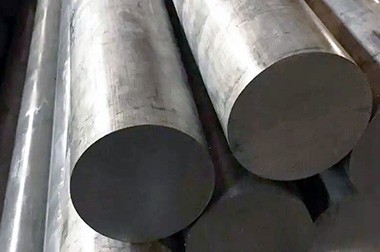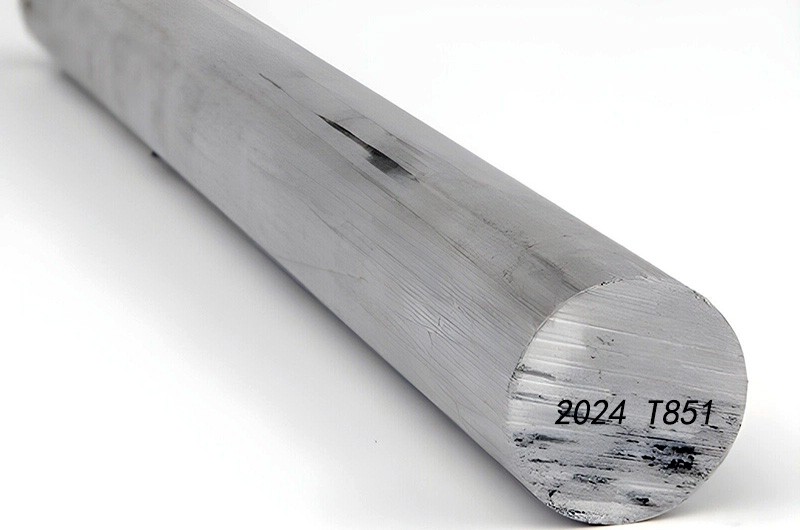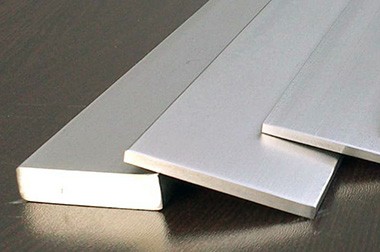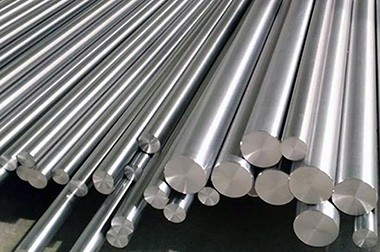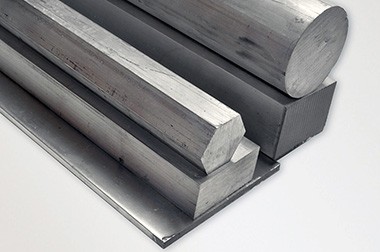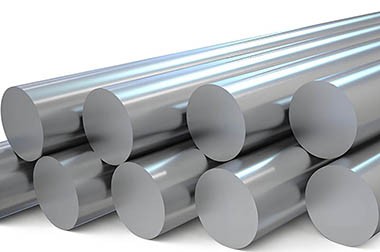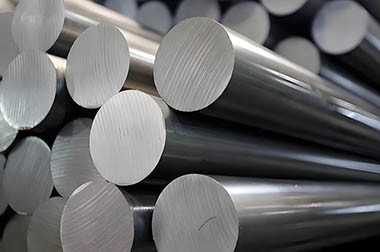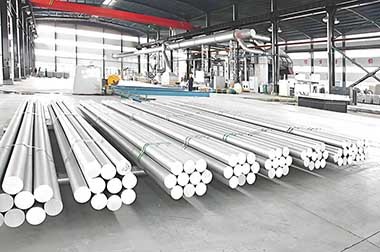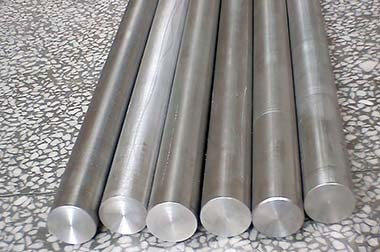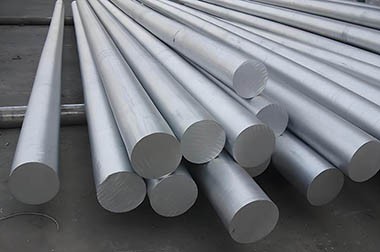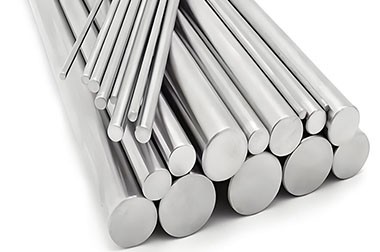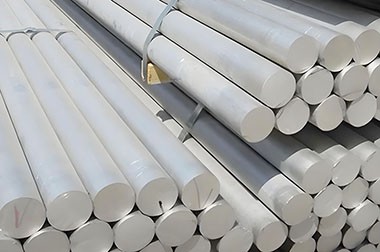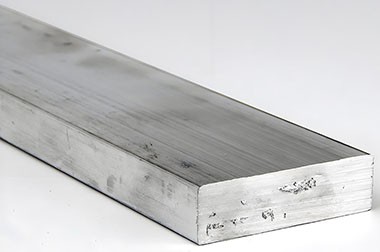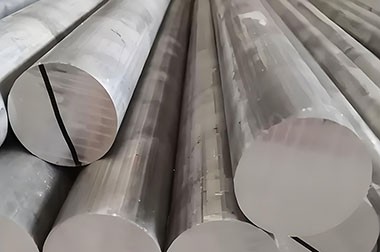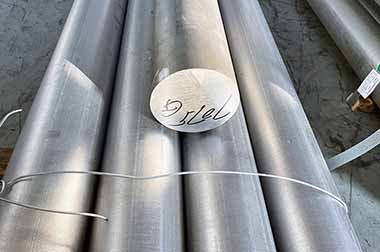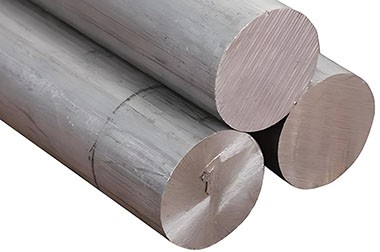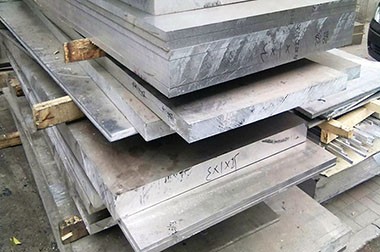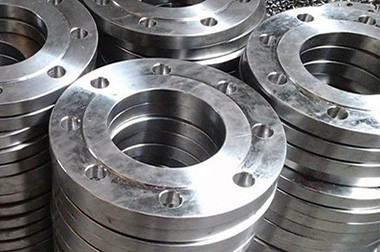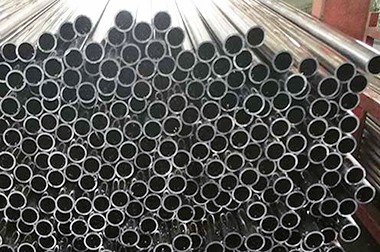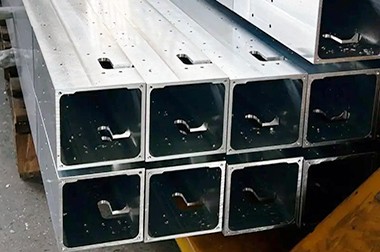2219 Aerospace Aluminum Bar
2219 aerospace aluminum bar is a high-strength aluminum material made from 2219 aluminum alloy, primarily used in the aerospace industry. Its main components include aluminum, copper, and small amounts of other alloying elements such as manganese, iron, and silicon.
2219 aluminum alloy is renowned for its excellent high-temperature resistance and high strength-to-weight ratio, making it particularly suitable for applications where structural strength and heat treatment performance are critical.
The 2219 aluminum bar is made from the 2219 aluminum alloy, which is an aluminum-copper based alloy bar with high strength, high-temperature resistance, and good weldability.
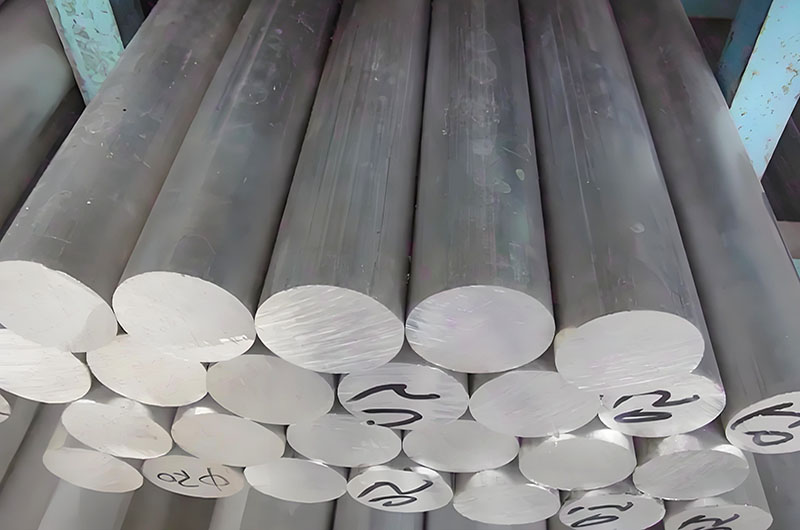
The 2219 aluminum bar is made from a heat-treatable aluminum-copper alloy (belonging to the 2000 series) and is known for its excellent high-temperature performance and high strength-to-weight ratio. It is widely used in applications where structural integrity under thermal stress is crucial, such as in aerospace and high-performance engineering.
The 2219 aluminum bar is a high-performance material, highly regarded for its outstanding high-temperature resistance, strong mechanical properties, and reliable weldability when properly processed. Its balanced composition and various manufacturing methods make it an indispensable material in the aerospace industry and other high-stress, temperature-sensitive applications.
2219 Aerospace Aluminum Bar Specifications
| Specification | Details |
| Conventional Diameter | 5 mm - 300 mm |
| Length | 1000 mm - 6000 mm |
| Customization | Specific sizes and lengths can be determined based on production standards and customer requirements |
Haomei Aluminum can produce AMS 4162 2219-T8511 aluminum alloy bars, ASTM B247 2219-T6 aerospace aluminum bars, AMS B211 2219-T851 aluminum extruded bars, AMS 4128E 2219-T851 aerospace aluminum alloy bars, and more.
Haomei Aluminum is a premium manufacturer of 2219 aluminum alloy bars, supplying 2219 aluminum round bars, 2219 aluminum flat bars, 2219 aluminum square bars, and 2219 aluminum rectangular bars.
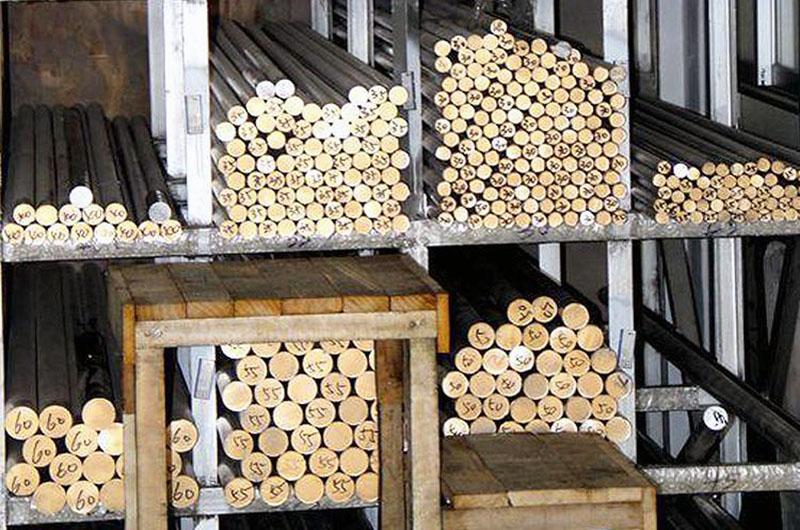
2219 Aluminum Bar Standards
- AMS:4186 (for bars), 4190 (for forgings).
- ASTM:B211 (for extruded bars).
- UNS designation: A92219.
Standards such as ASTM B211, ASTM B221, and AMS 4162 ensure consistent quality and performance across different production batches.
2219 Aerospace Aluminum Bar Features
- 1. High Strength: 2219 aluminum alloy has high yield strength and tensile strength, making it suitable for use in high-stress environments, ideal for load-bearing or force-absorbing structural components.
- 2. Heat Resistance: Compared to other aluminum alloys, 2219 aluminum maintains good mechanical properties at high temperatures, making it ideal for parts in aerospace applications exposed to high heat.
- 3. Weldability: 2219 aluminum alloy can be welded using various methods, but special welding techniques are required to ensure the strength and performance of the welds are maintained.
- 4. Heat Treatability: This alloy can undergo various heat treatment processes such as T6 and T8 to enhance its mechanical properties, adjusting its hardness and toughness.
- 5. Corrosion Resistance: Although the natural corrosion resistance of 2219 aluminum is moderate, its resistance can be significantly improved through surface treatments like anodizing.

2219 Aluminum Bar Corrosion Resistance
- Sensitivity: Due to its copper content, which is lower than 5xxx/6xxx alloys, it is more prone to stress corrosion cracking at certain temperatures.
- Protection: It is recommended to use anodizing, coatings, or cladding (Alclad) in harsh environments.
| Aspect | Description |
| Corrosion Sensitivity of 2219 Aluminum Bar | Due to its higher copper content, the 2219 aluminum bar has poorer corrosion resistance compared to 5xxx and 6xxx series aluminum alloys. Especially in humid or salt-laden environments, the copper element can exacerbate electrochemical corrosion. Additionally, under stress, this alloy is more prone to stress corrosion cracking (SCC) within specific temperature ranges. This phenomenon is more pronounced in high-temperature, high-humidity environments, or in the presence of chemicals. Therefore, special attention should be paid to its corrosion resistance in applications involving high stress and corrosive environments. |
| Corrosion Protection Measures for 2219 Aluminum Bar | To enhance the corrosion resistance of 2219 aluminum bar, additional surface treatment measures are typically recommended in harsh environments. Anodizing is an effective method that forms a dense oxide layer on the aluminum surface, providing an additional protective barrier against corrosion. Additionally, coating treatments such as epoxy resin or polyurethane coatings can effectively isolate corrosion factors from the external environment. For certain aerospace applications, the 2219 aluminum bar can also be cladded with a layer of high-purity aluminum through the Alclad process, offering superior corrosion resistance. These measures significantly enhance the service life and reliability of 2219 aluminum bar in harsh environments. |
Special Properties of 2219 Aluminum Bar
- Low-Temperature Performance: 2219 aluminum bar maintains mechanical properties at extremely low temperatures.
- Fracture Toughness: High, especially in the T8 temper.
- Recyclability: Fully recyclable, but alloy elements must be controlled during reprocessing.
2219 aluminium bar chemical composition
| Element | Composition(%) |
| Si | ≤0.2 |
| Fe | ≤0.3 |
| Cu | 5.80-6.80 |
| Mn | 0.20-0.40 |
| Mg | ≤0.02 |
| Zn | ≤0.1 |
| Ti | 0.02-0.10 |
| V | 0.05-0.15 |
| Zn | 0.10-0.25 |
| Al | Remainder |
Conventional physical properties of 2219 aluminum alloy rods
| Density | 2.84 g/cm3 |
| Elastic modulus | 72.4 GPa |
| Melting point | 535-635 °C |
| Thermal expansion coefficient | 23.5 µm/(m·K) |
| Thermal conductivity | 121 W/(m·K) |
Mechanical properties of 2219 aluminum bars
| Material | Temper | Direction | Tensile strength (ksi) | Yield strength(ksi) | Elongation in 2'' (%) |
| Alloy 2219 (AMS 4162) | T8511 | L | 58 | 42 | 6 |
| Alloy 2219 (AMS 4162) | T8511 | LT | 56 | 39 | 4 |
| Alloy 2219 (ASTM B211) | T851 | - | 58 | 40 | 4 |
2219 Aluminum Bar Applications
Which industries use 2219 Aluminum Bar?
- Aerospace
- Military/Defense
- Automotive and Transportation
- Energy and Chemicals
- High-end Equipment Manufacturing
- Marine Engineering (requires corrosion protection)
2219 Aluminum Alloy Rod Bar for Aerospace Applications
- 1. Fuselage and Wings: Due to its high strength and low density, 2219 aluminum alloy is commonly used in structural components of aircraft fuselages and wings. These parts need to withstand immense pressure and stress while maintaining lightweight properties to improve flight efficiency.
- 2. Spars and Longerons: This alloy can be used to make the spar and longeron structures in wings, which need to withstand bending and shear stress, ensuring the stability and safety of the wings.
- 3. Tail Cone Frame: In modern jet aircraft, the tail cone frame structure often uses 2219 aluminum alloy to enhance the overall strength and stability of the tail section.
- 4. Horizontal and Vertical Stabilizers: 2219 aluminum alloy is used to manufacture the frames of horizontal and vertical stabilizers because of its ability to resist aerodynamic loads and provide sufficient structural support.
- 5. Fuel Tanks: Due to its excellent corrosion resistance and strength, 2219 aluminum alloy is widely used in aircraft fuel tanks. The material can withstand the chemical corrosion of fuel, ensuring the safety and reliability of fuel storage.
- 6. Pipes and Fittings: In fuel delivery systems, 2219 aluminum alloy is used to manufacture pipes and fittings because of its excellent mechanical properties and fatigue resistance.
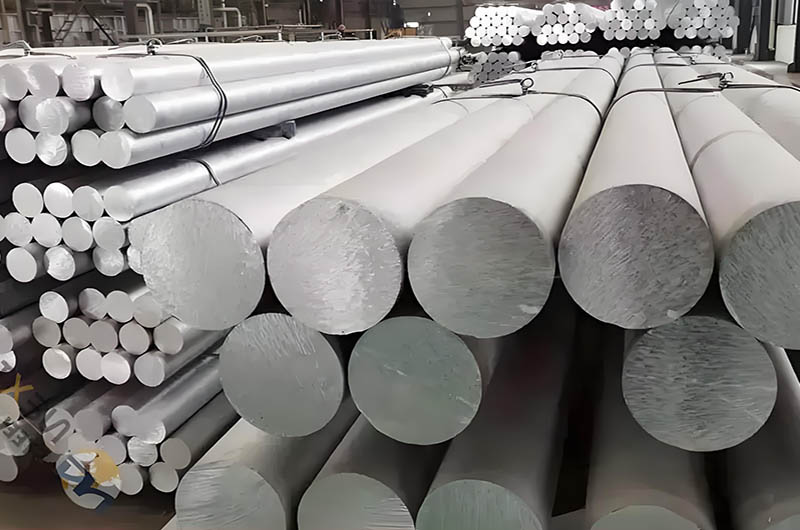
What other specific fields use 2219 Aluminum Bar?
Due to its high strength, excellent fracture toughness, and resistance to stress corrosion (especially at high temperatures), the 2219 aluminum bar is the material of choice for the following fields:
- Space Applications: Structural components in spacecraft (e.g., fuel tanks and space shuttle parts).
- Cryogenic Applications: Maintains strength at low temperatures, ideal for liquid hydrogen/oxygen storage.
- High-Temperature Environments: Suitable for components exposed to high temperatures, where materials must maintain strength at temperatures from sub-zero to around 600°F (315°C).
The 2219 aluminum's lightweight and high-strength characteristics also make it valuable in other advanced engineering fields, where performance under thermal and mechanical stress is critical.
2219 Aluminum Bar Processing and Manufacturing
2219 aluminum bars can be produced through processes such as rolling, forging, and extrusion. After processing, they can undergo heat treatment to further enhance their strength and hardness.
2219 Aluminum Bar is well-suited for a variety of metalworking processes
- Processing: It is easy to machine in the annealed state. However, after heat treatment, processing becomes more challenging—oil-based lubricants are recommended.
- Forming and Forging: If proper heat treatment is applied afterward to restore corrosion resistance, the material can be formed, cold-worked, or hot-worked.
Welding and Fabrication
- Welding: While it is weldable (typically using resistance or inert gas welding techniques), welding requires careful control of heat input and subsequent heat treatment to maintain corrosion resistance and mechanical integrity.
- Weldability: Excellent for 2xxx alloys; typically welded with 2319 filler using TIG or MIG welding.
- Post-Weld Heat Treatment (PWHT): Usually required to restore strength in the heat-affected zone.
- Formability: Performs best in the annealed state; machinability is average but requires appropriate tooling.
Limitations of 2219 Aluminum Bar
- Corrosion: Requires protective treatments in corrosive environments.
- Cost: Due to specialized aerospace applications, it is more expensive than common alloys like 6061.
The 2219 aluminum bar is the material of choice for high-strength, lightweight applications in aerospace and cryogenic systems. Although corrosion protection and proper heat treatment are crucial for optimal use, its weldability and performance in extreme conditions make it indispensable in advanced engineering.
You may also be interested in the following
-
2124 2219 Aerospace Aluminum for Engine Support Structure
Alloys 2124 and 2219 are used in engine support structures due to their high strength and excellent fatigue resistance, providing durability under extreme conditions.

